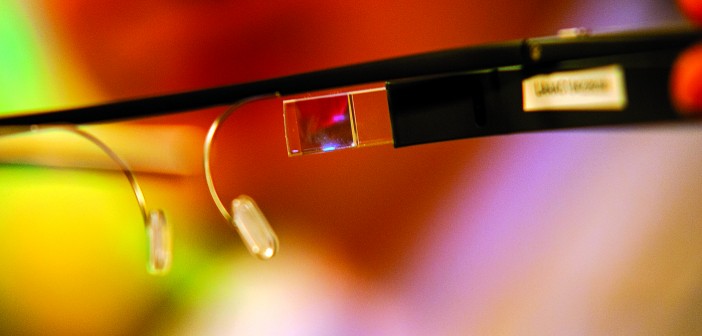A new study tests medical applications of mobile video technology.
Sure, it’s cool, but could Google Glass be useful in clinical care? Researchers at Alpert Medical School and Rhode Island Hospital are testing it out in the emergency department.
Using a stripped-down version of the wearable mobile video communications technology, researchers will test the efficacy of using Google Glass for realtime audio-visual consults for willing patients who require a dermatology consultation.
“We live in a world of instant gratification, and in many ways, we’re testing that mindset by using Google Glass to enhance telemedicine in the emergency department,” says principal investigator Paul Porter, MD, assistant professor of emergency medicine (clinical) and a physician in the emergency departments of Rhode Island, Hasbro Children’s, and The Miriam hospitals.
The researchers will use Google Glass to stream live images of a patient’s dermatological condition to the consulting dermatologist. He or she will be able to see identical images on a tablet in real time, making it possible to offer appropriate advice, diagnosis, and treatment options.
Porter and researchers Peter Chai ’06 MMSc’07 MD’10 RES’ and Roger Wu, MD RES’ worked with experts at Pristine, a health care technology communications company, which has developed the only form of Google Glass that meets HIPAA laws.
While this study is limited to patients needing a dermatology consult, the researchers see opportunities for broader applications. “Ultimately, the use of this technology could result in better coordinated care, faster interventions, better outcomes, fewer follow-up office visits, fewer readmissions, and lower costs— for a wide range of disciplines, not just dermatology,” Porter says.
The six-month feasibility study will be limited to emergency patients who require a dermatology consult, and who consent to take part in the study. Rhode Island Hospital is the first hospital in the US to use Google Glass in an emergency department setting.




